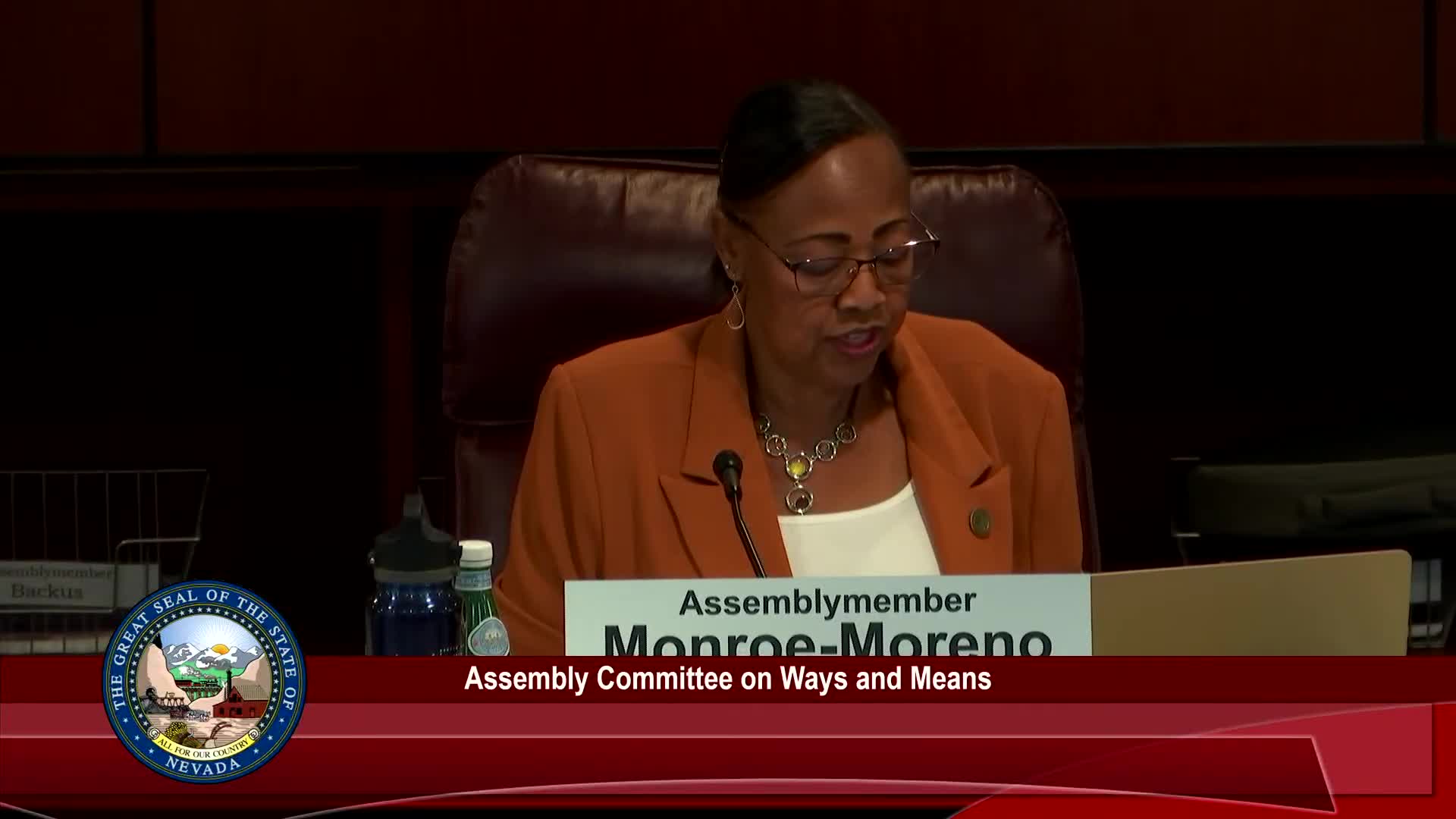Article not found
This article is no longer available. But don't worry—we've gathered other articles that discuss the same topic.
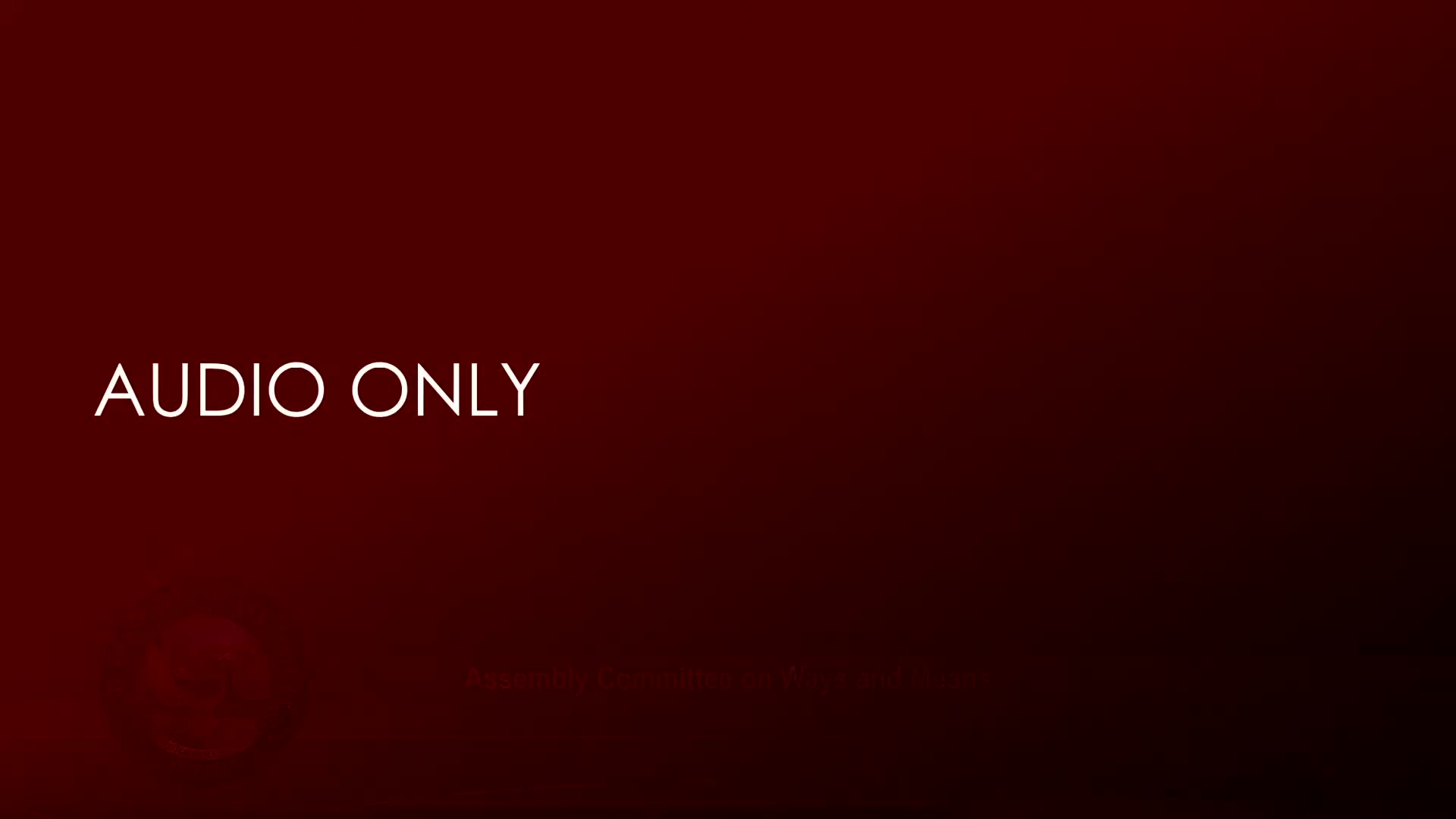
Supreme Court asks for two additional district judges for First and Tenth Judicial Districts
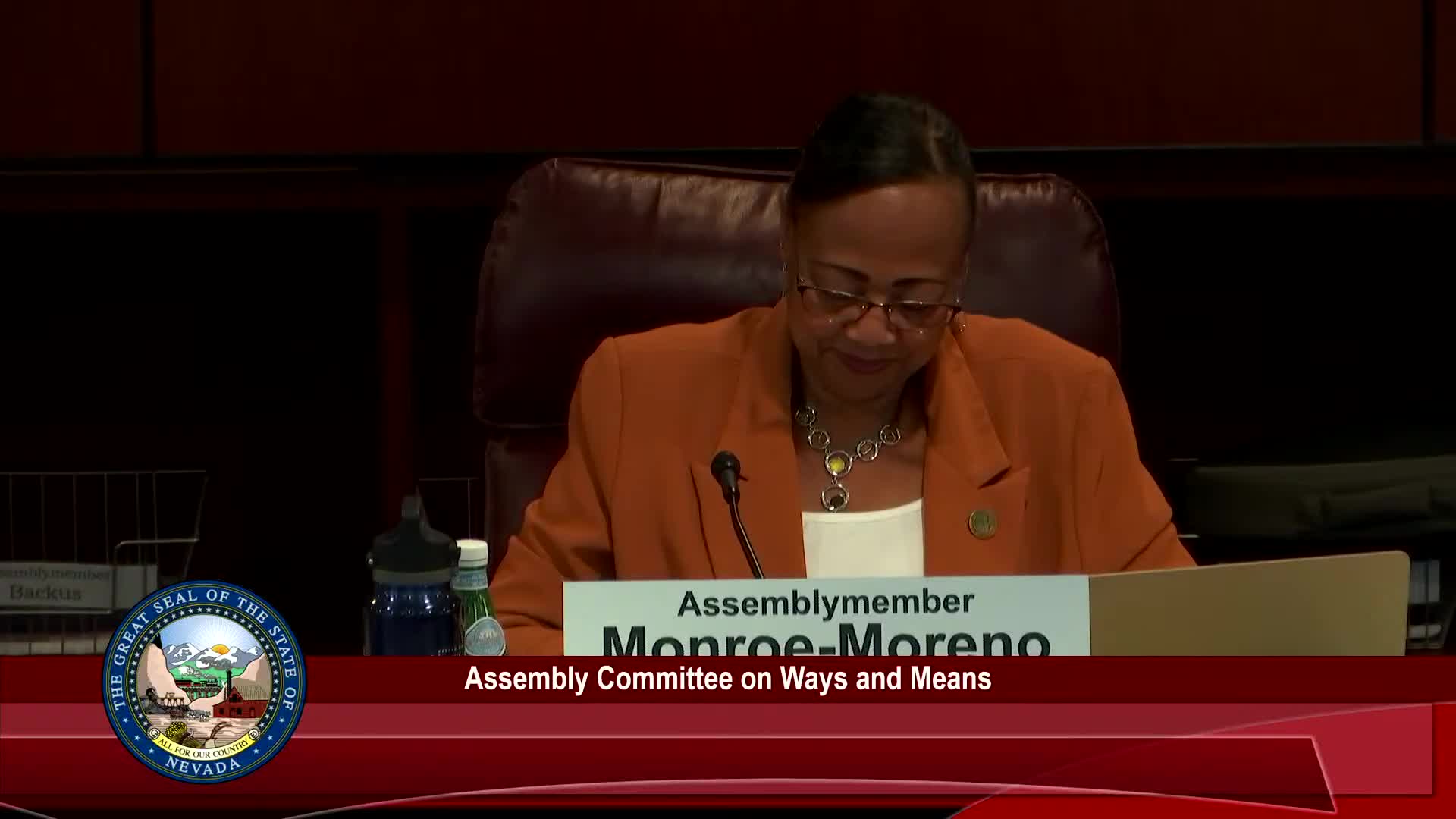
Department of Corrections seeks $44.74M supplemental to cover overtime, utilities and inmate expenses
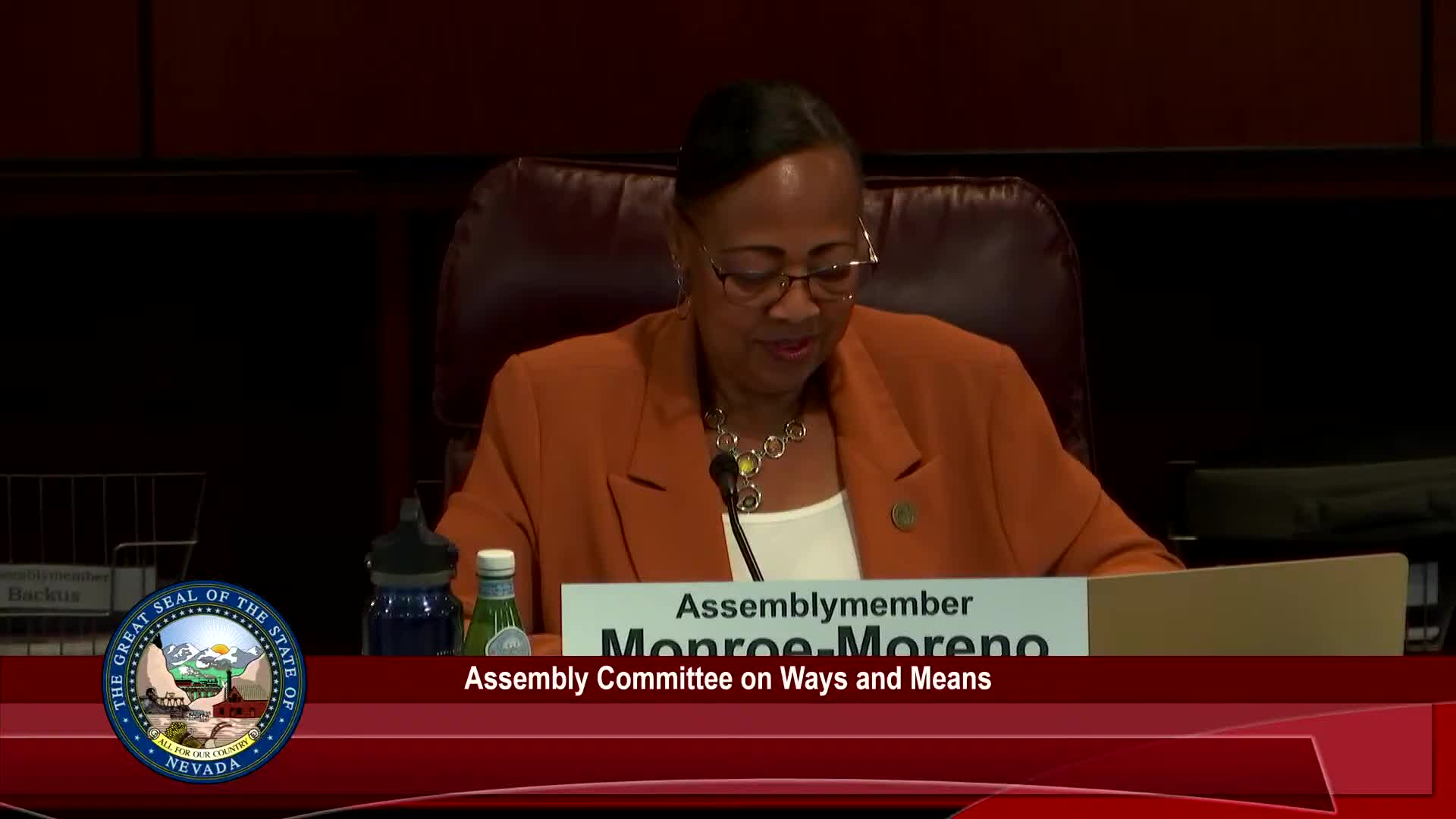
Division of Forestry seeks $20.0M supplemental to repay firefighting shortfall; agency reports substantial reimbursements invoiced
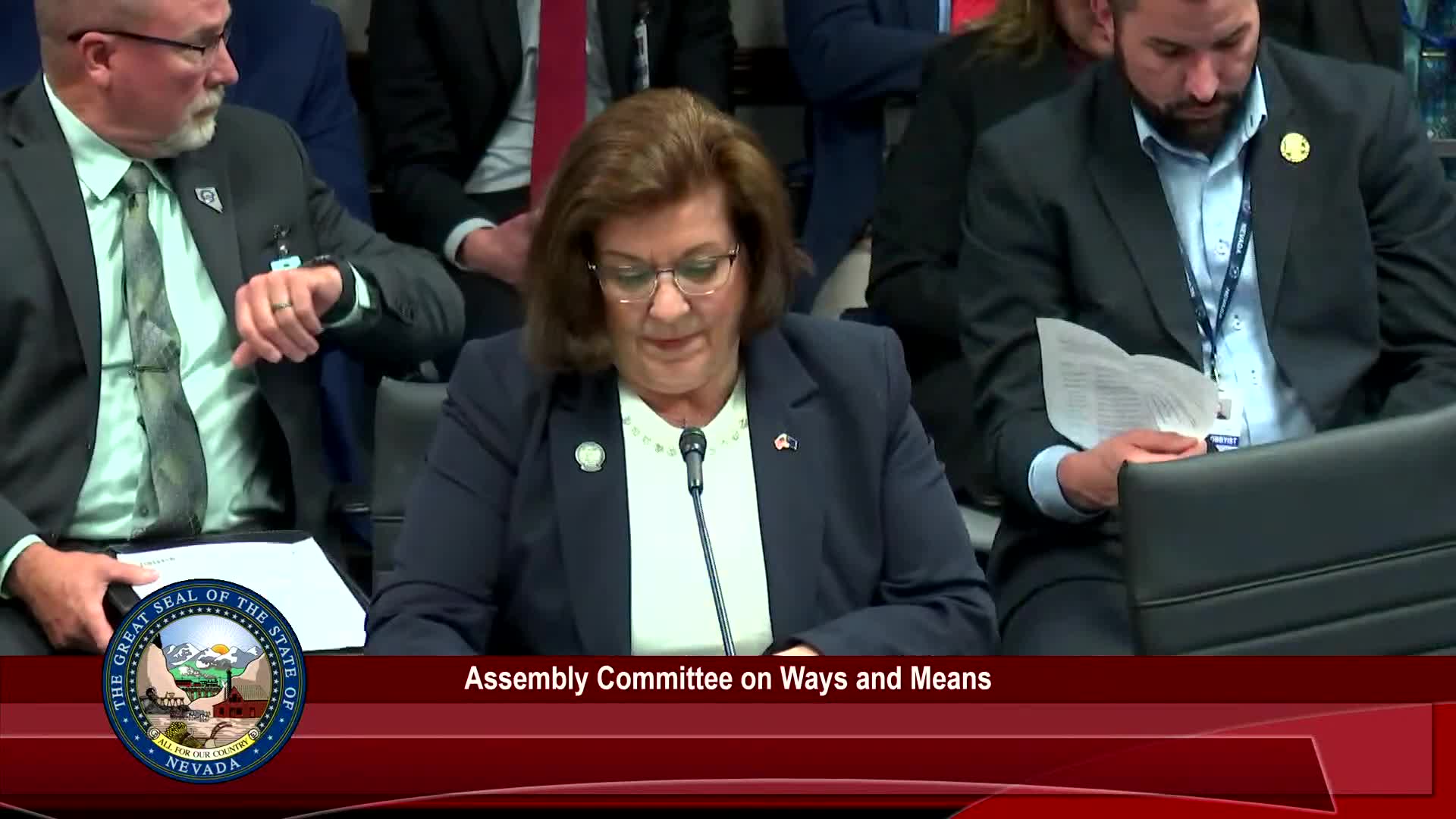
AB 115 would permit expanded use of state buildings for events; agencies say building meets minimum accessibility
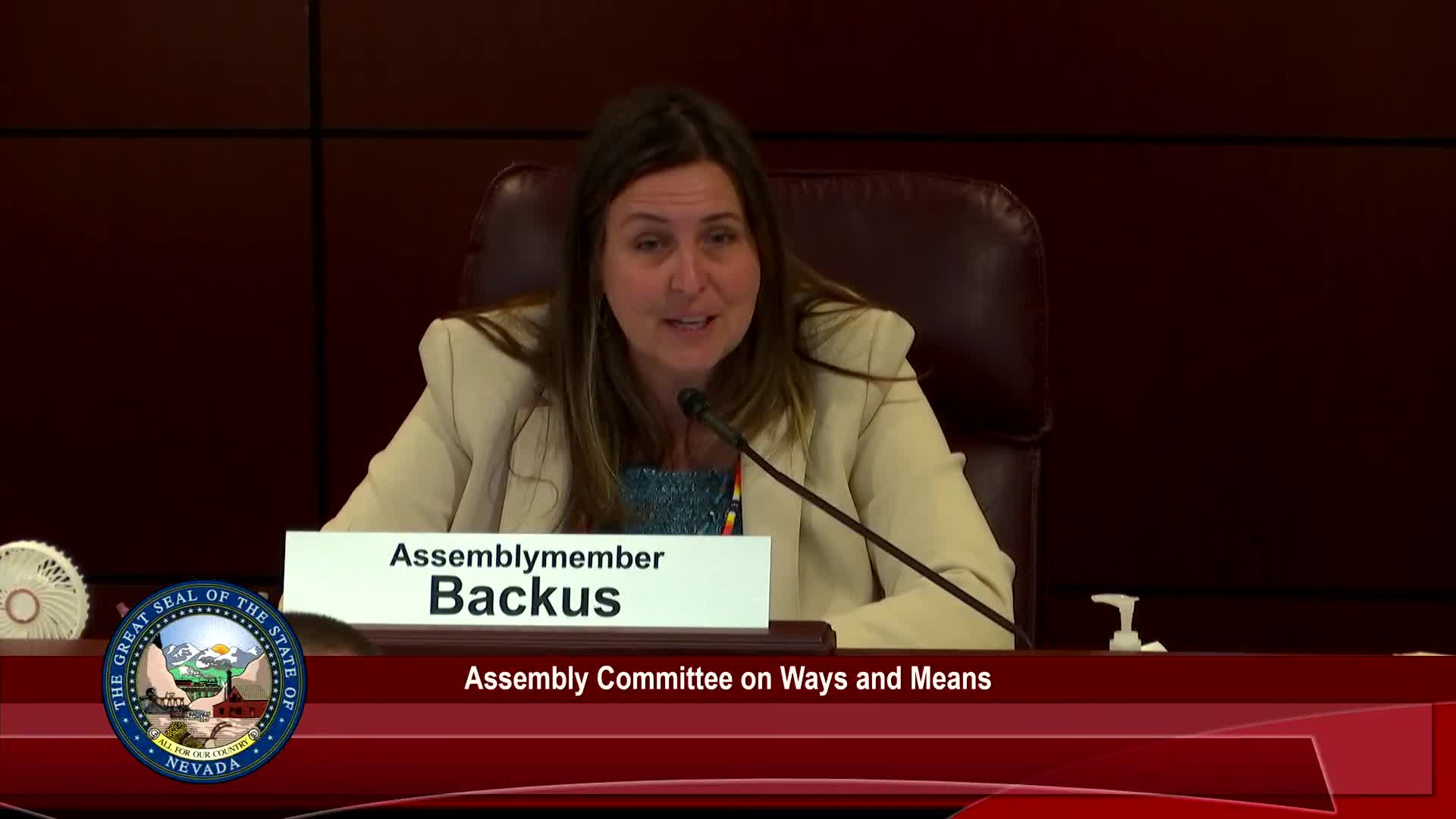
Bill would let Washoe health district regulate EMS locally; sponsors also seek to lower EMT licensing age to 16
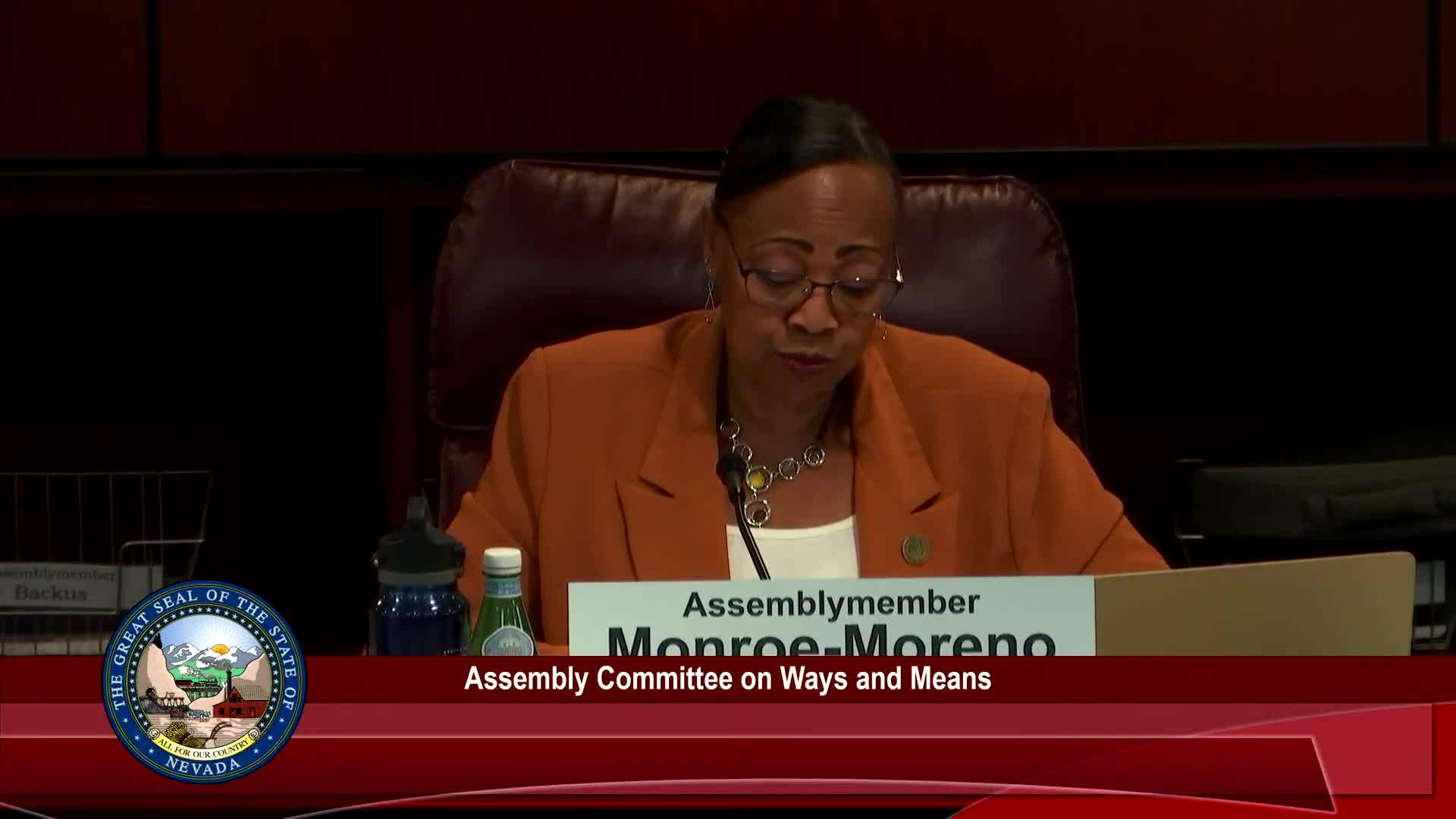
Bill would exempt ADUs rented to Section 8 tenants from property tax on the unit; sponsors and housing authorities back pilot approach
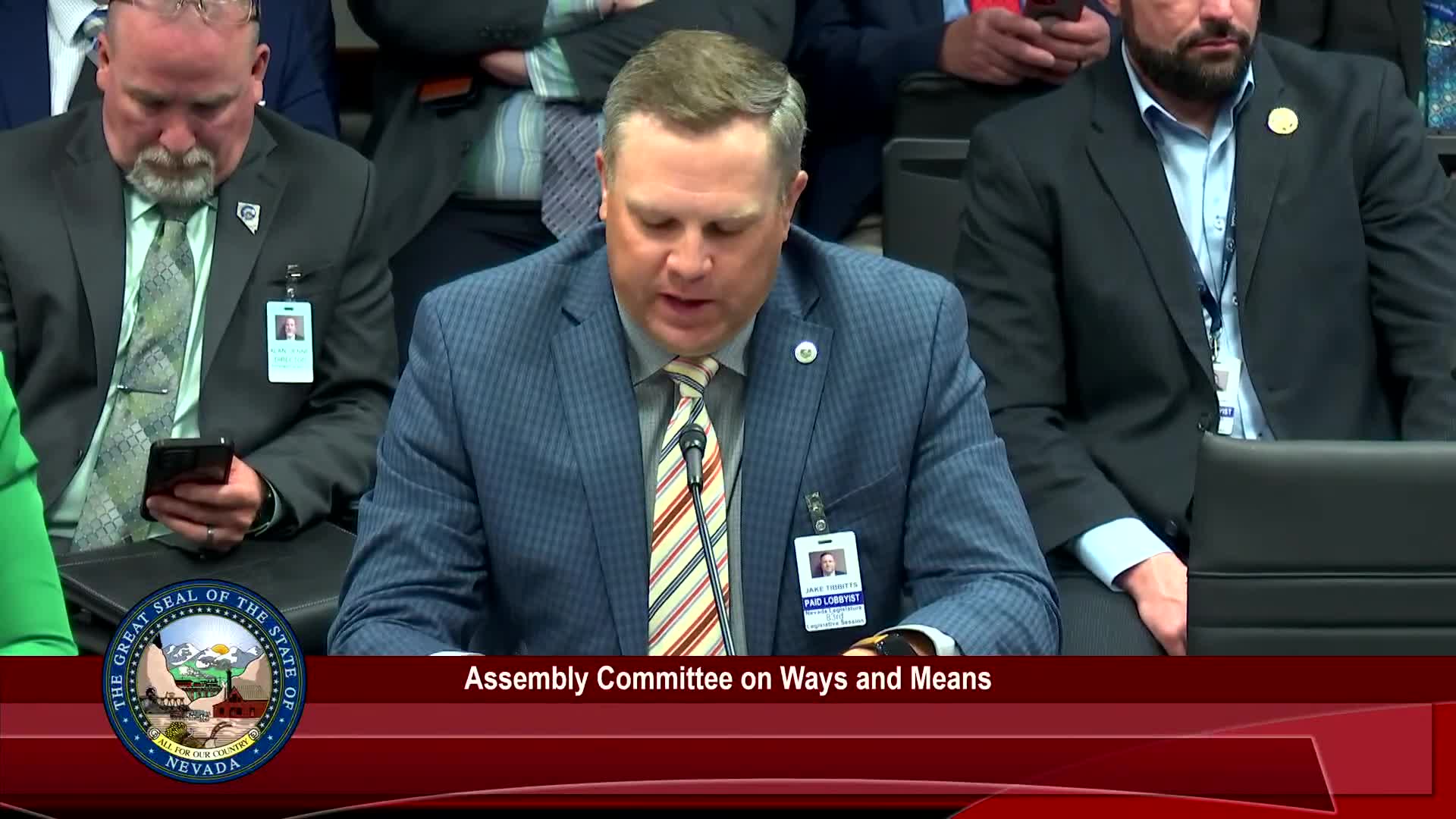
Assembly hears AB 80 to create Nevada Healthy Soils Initiative, sponsors say federal funds hinge on program
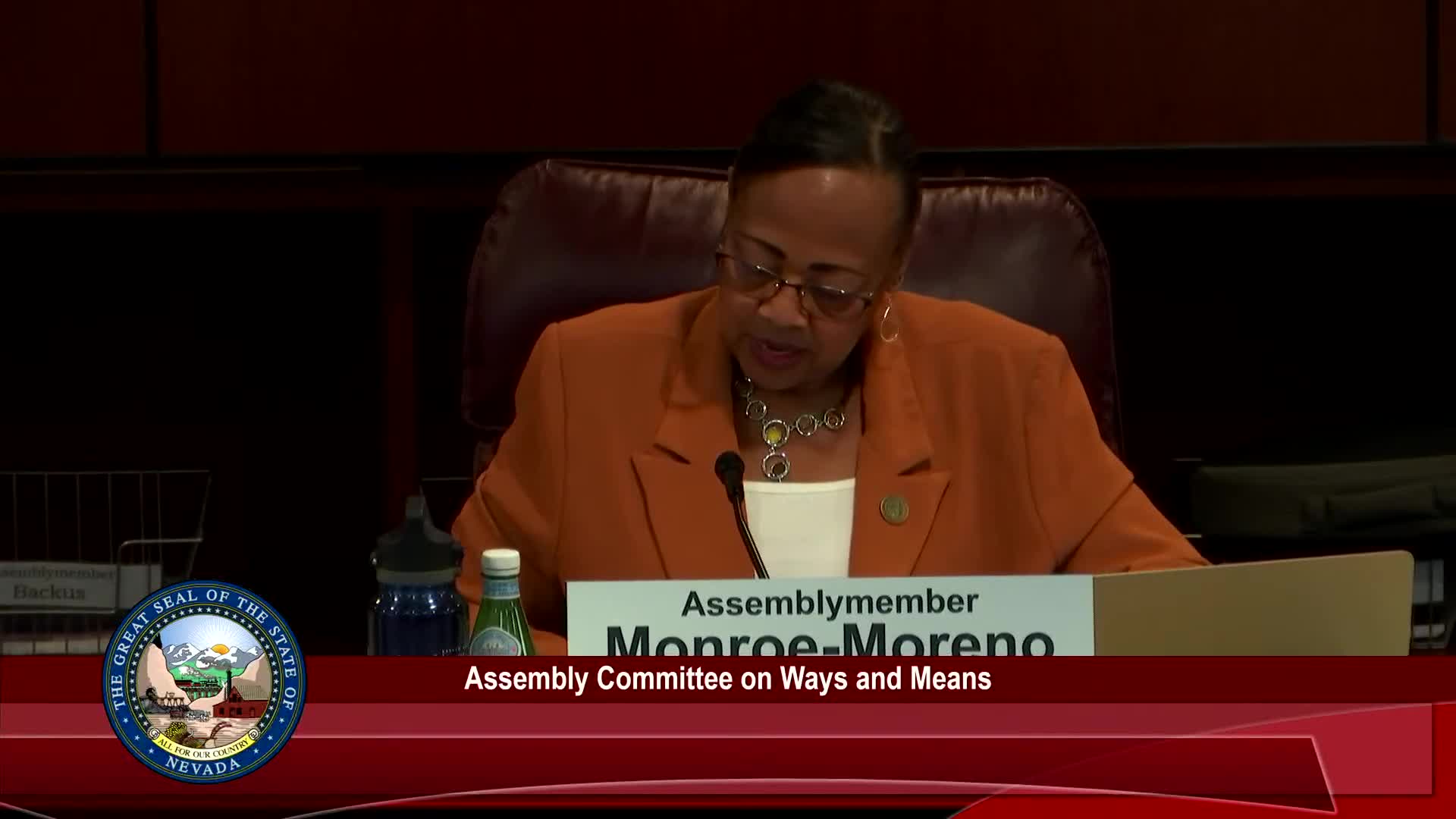
Washoe County's licensure changes draw questions on fiscal impact, provisional hires
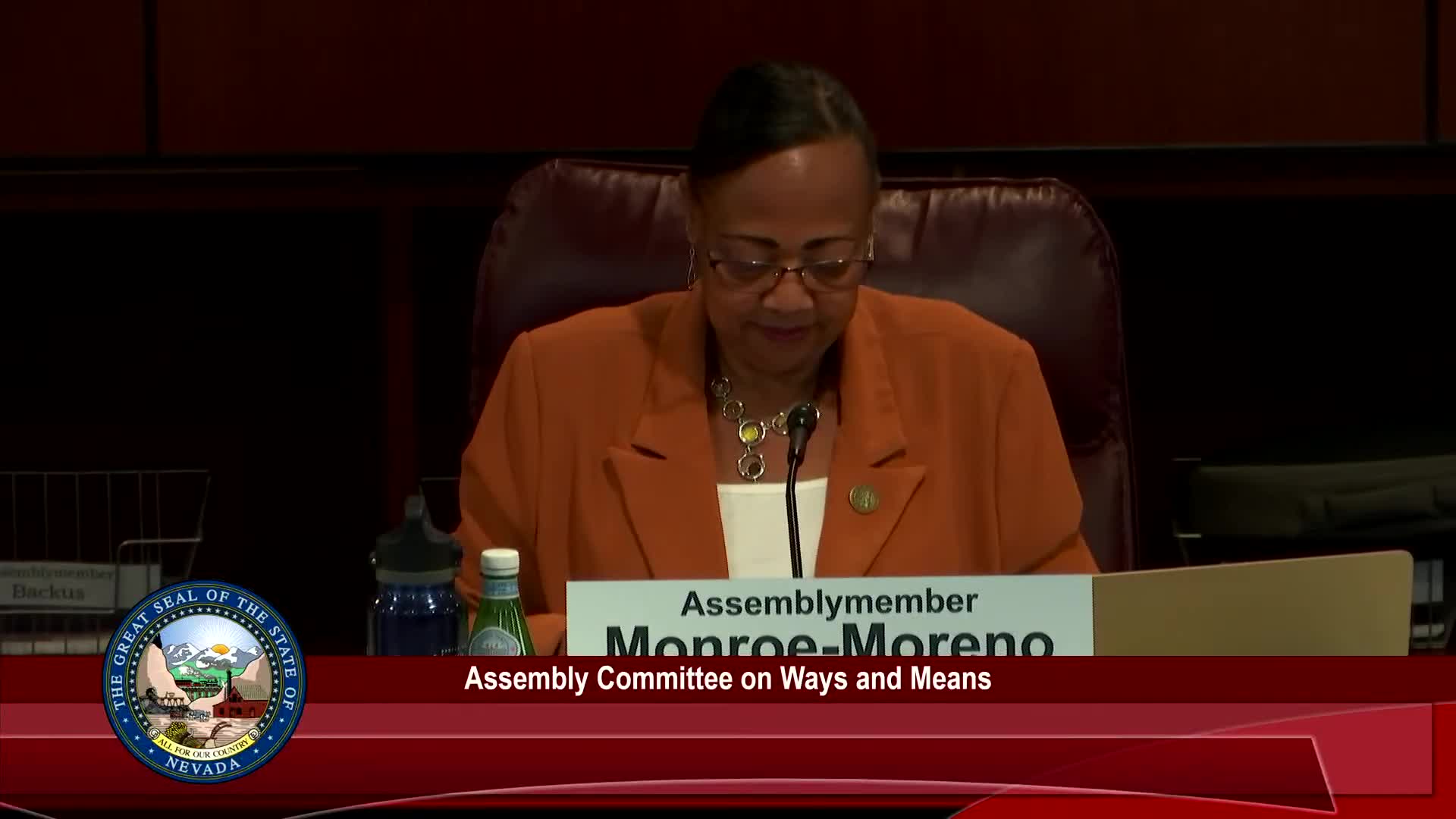
Assembly committee hears proposal to create FASD treatment assistance program for children
